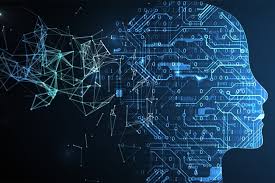Artificial intelligence (AI) is one of the most rapidly advancing technologies of our time. It’s already being used in many industries and has the potential to transform the way we live, work, and interact with one another. In this blog post, we’ll take a look at some of the key trends and innovations in AI and explore how they’re likely to shape the future of this field.

One of the most significant developments in AI is the emergence of deep learning. Deep learning is a type of machine learning that uses neural networks to process and analyze large amounts of data. These neural networks are modelled after the human brain and are capable of learning and making decisions on their own. This has led to breakthroughs in image recognition, natural language processing, and other areas of AI.
Another important trend in AI is the increased use of machine learning in the cloud. With the advent of cloud computing, it’s now possible to store and process vast amounts of data on remote servers, making it easier for businesses and organizations to access and use AI-powered services. This has led to the rise of cloud-based AI platforms, which provide companies with the tools they need to build and deploy AI applications.
One area where AI is already having a major impact is in healthcare. Researchers are using AI to develop new medical treatments and drugs, as well as to improve the accuracy of diagnostic tests. For example, AI-powered systems are being used to analyze medical images and identify cancerous tumors, and they’re also being used to develop new drugs by analyzing large amounts of genetic data.
Another area where AI is having a major impact is in transportation. Self-driving cars are already on the road and are expected to become more common in the coming years. These cars rely on AI to navigate and make decisions, and they have the potential to reduce the number of accidents caused by human error. Additionally, AI-powered drones are being developed for package delivery and other applications, which could greatly increase the efficiency of transportation systems.
In the field of education, AI is being used to personalize learning experiences for students. AI-powered tutoring systems can analyze student data and adjust instruction to meet individual needs. Additionally, AI-powered virtual and augmented reality systems are being developed to provide more immersive and engaging learning experiences.
Another area where AI is having a major impact is in the field of finance. AI-powered systems are being used to detect and prevent fraud, as well as to identify and analyse financial data. Additionally, AI-powered trading systems are being developed to make more efficient and profitable trades.
As AI continues to evolve, it is expected to have a major impact on the job market as well. Some jobs may be automated or replaced by AI-powered systems, while others will be created to support and maintain these systems. It is important for individuals to continuously update their skills and adapt to the changing job market in order to stay relevant and employable.

In the future, AI will continue to evolve and become more sophisticated. We will see the development of more advanced natural language processing, computer vision, and other capabilities. Additionally, we will see the integration of AI into more devices and systems, making it more accessible and useful to individuals and organizations.
Another important area of AI development is the field of ethics and governance. As AI becomes more advanced, it is important to ensure that it is being used ethically and responsibly. This includes addressing issues such as privacy, bias, and accountability. Additionally, there will be a need for governance frameworks to ensure that AI is being used in a way that is in the best interest of society.
In conclusion, the future of AI is looking bright and it has the potential to transform many industries and improve our lives in countless ways. However, it is important that we continue to invest in this field and work to ensure that its benefits are shared by all. As AI becomes more advanced, it will be important to address ethical and governance issues to ensure that it is being used in a responsible and beneficial way.
Moreover, we need to consider the potential consequences of AI advancements, such as job displacement and societal changes. Thus, it’s important to have a comprehensive plan for how to handle these issues and how to ensure that everyone benefits from the advancements of AI. This will require collaboration between government, industry, and academia.
Another key aspect to consider is the need for more diversity and inclusiveness in the field of AI. The lack of diversity in the field of AI is not only a moral issue but also a practical one, a diverse team of developers will lead to better and more robust AI systems. It is important to encourage people from different backgrounds to pursue careers in AI and to create an inclusive environment in which they can thrive.
In summary, the future of AI is full of possibilities and it will continue to play an important role in shaping our world. It is essential that we continue to invest in the development of AI and work to ensure that its benefits are shared by all. Additionally, we must pay attention to the ethical and societal implications of AI, and strive to create a more inclusive and diverse field.
